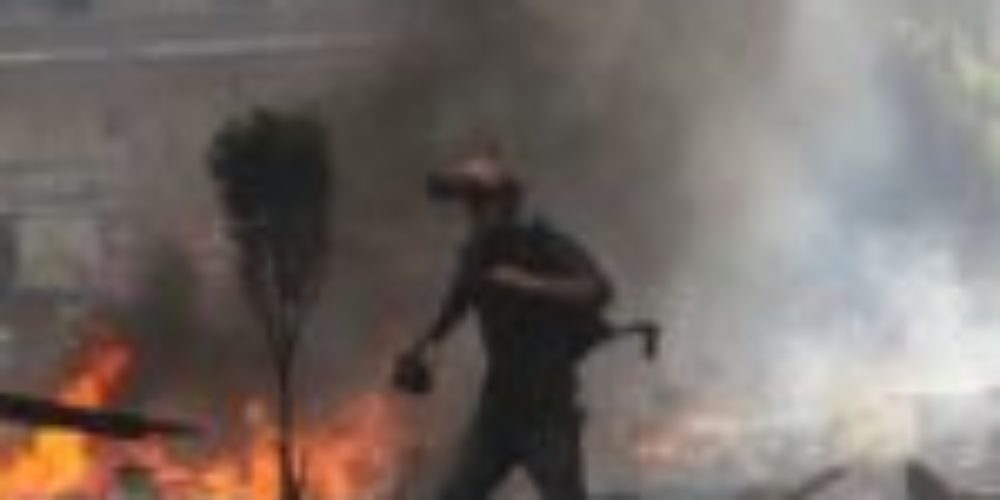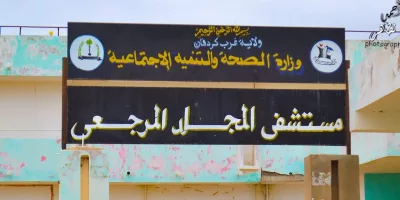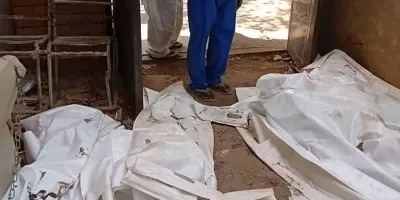News briefing
Geneva, 15 September 2021
Translated and edited by: The Committee for Justice
Seven United Nations special rapporteurs have issued an urgent action regarding the case of executions related to the dispersal of Rabaa Al-Adawiya sit-in, based on an urgent appeal the Committee for Justice (CFJ) sent on 23 June 2021, in which CFJ asked the rapporteurs to urgently intervene with the Egyptian government to halt the executions of the 12 defendants of Rabaa Al-Adawiya dispersal case, to call on the Egyptian government to order their retrial, and to urge it to establish an official moratorium on executions with a view to abolishing the death penalty.
In their memorandum, the UN rapporteurs expressed their concern about the imminent execution of 12 defendants following a mass trial in the famous Rabaa dispersal case, which according to them, failed to meet due process and fair trial standards. It was also marred by allegations of enforced disappearance, torture and other cruel, inhuman or degrading treatment or punishment, and arbitrary detention.
In its complaint, CFJ noted that the defendants had been subjected to numerous violations of the right to a fair trial. The UN human rights chief on 9 September 2018 described the sentences as a ” gross and irreversible miscarriage of justice”. Her statement was soon followed by the UN experts’ call for the Human Rights Council on 17 September 2018 to “respond urgently” to overturn the “appalling” verdicts in this case.
The charges, on which the court rulings were based, were broad and vague and were based solely on unfounded allegations by national security officers, and the collective verdicts are incompatible with the principle of individual criminal responsibility. Furthermore, the ruling ignored the possibility of politically motivated arbitrary arrests.
In fact, all the defendants who were arrested in this case were convicted without any exception, including journalists, and the Court of Cassation did not take this into account when appealing the verdict.
Moreover, the lawyers revealed that not all of the defendants had access to legal representation during most of the court sessions. Lawyers were denied their rights to make a legal defence, to make statements, to question witnesses, and to take time to make oral arguments.
The defendants were also not allowed for months or years to see or visit their families, meet or contact their lawyers, as their lawyers were not allowed to visit them in prison.
No security personnel have been charged or prosecuted despite accounts and videos that clearly show unarmed civilians being shot by snipers. The security forces even accused the protesters of killing some of the other protesters during the dispersal.
The verdict did not meet fair trial procedures:
The experts explained in a UN memorandum sent to the Egyptian authorities on July 16, 2021, that: “On 14 June 2921, the Court of Cassation of Egypt upheld the convictions and death sentences against 12 men in a case known as the “Rabaa dispersal” case, related to the dispersal, on 14 August 2013, by security forces of a sit-in held in Rabaa al-Adawiya square in Cairo to protest against the ousting of former President Mohamed Morsi. The events reportedly led to the killing of at least 900 people.”
The experts noted that the 12 people allegedly at risk of imminent execution are:
1) Abdelrahman Abdelhamid el-Bar, born in 1963, member of the Mulsim Brotherhood’s Guidance Council.
2) Mohammad Ibrahim el-Beltagy, born in 1963, former member of Parliament for the Freedom and Justice Party.
3) Safwat Mohamed Hamouda Higazy, born in 1963, Islamic preacher.
4) Ossama Yassin, born in 1964, former Minister of Youth and Sports under former President Morsi.
5) Ahmed Mohamed Aref, born in 1985, dentist and spokesperson for the Muslim Brotherhood.
6) Ihab Wagdy Mohamed, born in 1983, computer engineer.
7) Mohamed Abdelhai Hussain al-Farmawy, born in 1980, accountant.
8) Mostafa Abdelhai Hussain al-Farmawy, born in 1990, computer engineer.
9) Ahmed Farouk Kamel, born in 1948, lawyer.
10) Haytham al-Sayed al-Araby, born in 1985, contractor.
11) Mohamed Ali Zanati, born in 1963, former Secretary-General of the Freedom and Justice Party in New Cairo.
12) Abdelazim Ibrahim Attiya, born in 1975, doctor.
The experts stated that the judicial procedures did not meet due process and fair trial standards, particularly with regard to the right to time and facilities to prepare a defense and to contact a lawyer of one’s choice; the right to be tried by a competent, impartial and independent court; the right to cross-examine witnesses, and the right to judicial review.
The experts also drew attention to the trial’s failure to investigate the defendants’ allegations of enforced disappearance, torture and other cruel, inhuman or degrading treatment or punishment.
“The verdicts were not adequately motivated and the judge presiding over the initial trial publicly expressed his criticism of the Rabaa Al-Adawiya sit-in and the members and supporters of the Muslim Brotherhood, while the trial was still ongoing, and in a verdict related to another case. Six out of the 12 men sentenced to death were already in police or security custody in July 2013, and thus could not have been involved in the violent dispersal of the Rabaa Al-Adawiya Square, which took place in August,” said the experts.
Inhuman conditions of detention:
On the conditions of arbitrary detention, the experts said that the 12 men were held in conditions that may amount to torture and other cruel, inhuman or degrading treatment or punishment, with five of them being held in Tora 1 Prison (also known as Scorpion Prison), have been denied family visits and have been held in solitary confinement since their arrest. Other prisoners complained that they did not have access to fresh air, sunlight, or time outside their cells and the prison authorities refused to provide them with basic necessities including sufficient food, clothing and items for personal hygiene, even when prisoners or their families were bearing the costs.
Escalation of executions in Egypt:
The experts stressed that the death penalties escalated in Egypt since 2020, during which at least 107 people were executed, and so far, since the beginning of 2021, 58 death sentences were carried out, making Egypt the third-largest executioner in the world.
The experts expressed their concern that, if confirmed, these facts would amount to a violation of the right to life, and that these 12 executions might violate the absolute prohibition of enforced disappearance, as enshrined in the Declaration on the Protection of All Persons from Enforced Disappearance; and the absolute prohibition of torture and other cruel, inhuman or degrading treatment or punishment enshrined in Article 5 of the Universal Declaration of Human Rights, since a mass trial hardly meets the minimum standards required for a fair trial, given that it would make it impossible to ensure an individual determination of responsibility for the acts under trial; which is a fundamental principle of international human rights and criminal law.
Crimes against humanity:
The experts also stressed that the imposition and execution of the death penalty, at the conclusion of a trial in which all strict due process guarantees and fair trial standards were not respected, constitutes arbitrary killing, and is prohibited under international law, stressing that when arbitrary executions are carried out on a widespread and systematic basis, this may amount to (crimes against humanity), and may involve global criminal liability for any official involved in such acts.
The experts urged the Egyptian authorities to stop ordering the executions of the 12 people concerned, given the irreversible nature of the execution of the death penalty, and taking all necessary steps to address any allegations of enforced disappearance, torture, arbitrary detention, and violations of fair trial and due process guarantees they may have suffered; and, at the very least, ensure that they are retried in full compliance with international law.
The experts raised the alarm about what appears to be a rapid increase in the number of executions in Egypt, reiterating their call on the Egyptian authorities to consider establishing an official moratorium on pending executions, and future death sentences, with the aim of ensuring that death penalty cases are properly reviewed.
Egypt’s response to the UN memorandum:
The Egyptian Permanent Mission in Geneva demanded in a response to the UN memorandum that the deadline for responding to the memorandum be extended until 15 October, without presenting any objective refutation of the facts mentioned in the memorandum.






